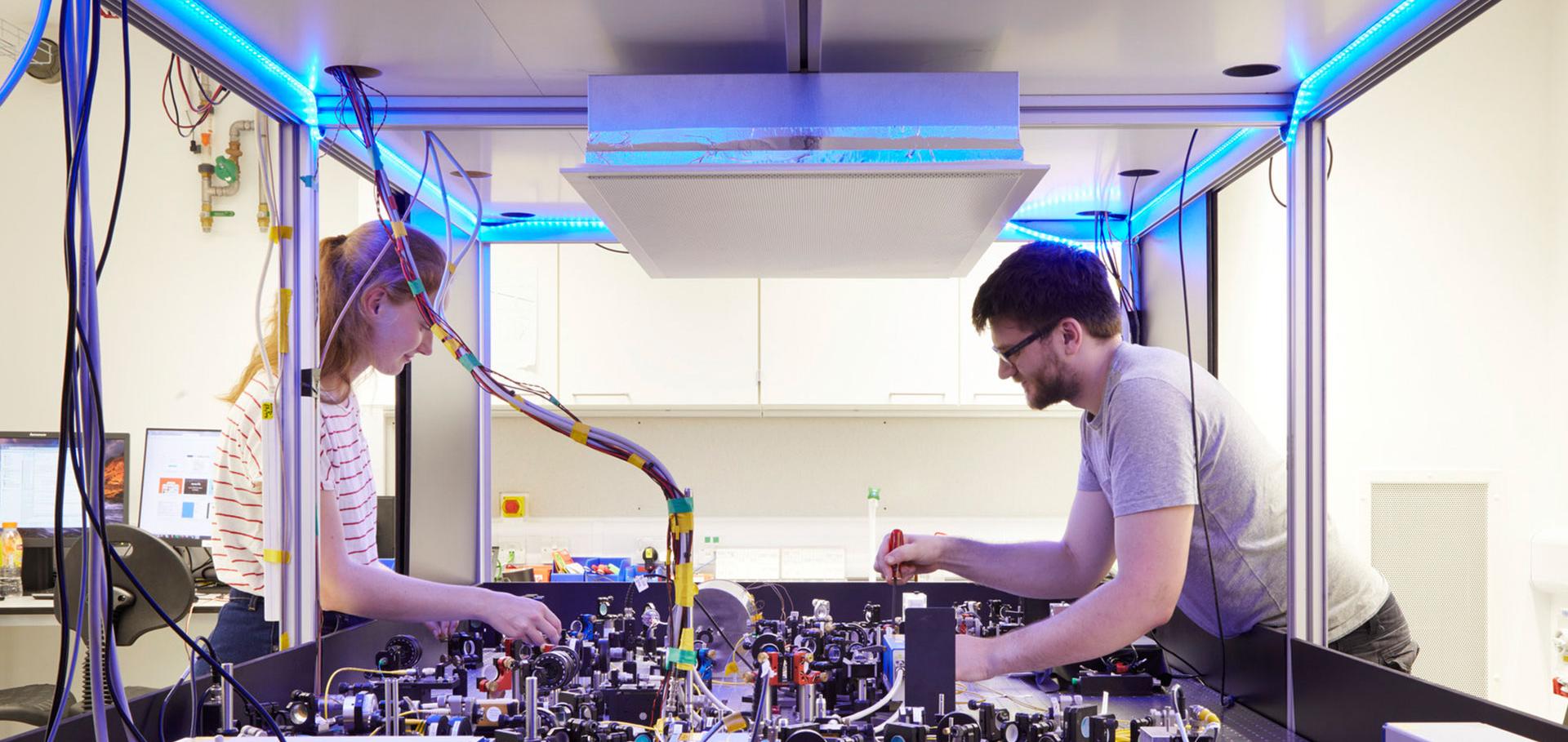Singlet generation in mixed-state quantum networks
Physical Review A - Atomic, Molecular, and Optical Physics 81:4 (2010)
Abstract:
We study the generation of singlets in quantum networks with nodes initially sharing a finite number of partially entangled bipartite mixed states. We prove that singlets between arbitrary nodes in such networks can be created if and only if the initial states connecting the nodes have a particular form. We then generalize the method of entanglement percolation, previously developed for pure states, to mixed states of this form. As part of this, we find and compare different distillation protocols necessary to convert groups of mixed states shared between neighboring nodes of the network into singlets. In addition, we discuss protocols that only rely on local rules for the efficient connection of two remote nodes in the network via entanglement swapping. Further improvements of the success probability of singlet generation are developed by using particular forms of "quantum preprocessing" on the network. This includes generalized forms of entanglement swapping and we show how such strategies can be embedded in regular and hierarchical quantum networks. © 2010 The American Physical Society.Towards high-speed optical quantum memories
Nature Photonics 4:4 (2010) 218-221
Abstract:
Quantum memories, capable of controllably storing and releasing a photon, are a crucial component for quantum computers1 and quantum communications2. To date, quantum memories3-6 have operated with bandwidths that limit data rates to megahertz. Here we report the coherent storage and retrieval of sub-nanosecond low-intensity light pulses with spectral bandwidths exceeding 1GHz in caesium vapour. The novel memory interaction takes place through a far off-resonant two-photon transition in which the memory bandwidth is dynamically generated by a strong control field7,8. This should allow data rates more than 100 times greater than those of existing quantum memories. The memory works with a total efficiency of 15%, and its coherence is demonstrated through direct interference of the stored and retrieved pulses. Coherence times in hot atomic vapours are on the order of microseconds, the expected storage time limit for this memory. © 2010 Macmillan Publishers Limited. All rights reserved.Simulating and detecting artificial magnetic fields in trapped atoms
Physical Review A - Atomic, Molecular, and Optical Physics 81:1 (2010)
Abstract:
A Bose-Einstein condensate exhibiting a nontrivial phase induces an artificial magnetic field in immersed impurity atoms trapped in a stationary, ring-shaped optical lattice. We present an effective Hamiltonian for the impurities for two condensate setups: the condensate in a rotating ring and in an excited rotational state in a stationary ring. We use Bogoliubov theory to derive analytical formulas for the induced artificial magnetic field and the hopping amplitude in the limit of low condensate temperature where the impurity dynamics is coherent. As methods for observing the artificial magnetic field we discuss time-of-flight imaging and mass current measurements. Moreover, we compare the analytical results of the effective model to numerical results of a corresponding two-species Bose-Hubbard model. We also study numerically the clustering properties of the impurities and the quantum chaotic behavior of the two-species Bose-Hubbard model. © 2010 The American Physical Society.Coherent optical memory with GHz bandwidth
Lasers and Electro-Optics/Quantum Electronics and Laser Science Conference: 2010 Laser Science to Photonic Applications, CLEO/QELS 2010 (2010)
Abstract:
We demonstrate the coherent storage and retrieval of sub-nanosecond low-intensity light pulses with spectral bandwidths exceeding 1 GHz in cesium vapor, using the novel, far offresonant two-photon Raman memory protocol. © 2010 Optical Society of America.Decoherence of a quantum memory coupled to a collective spin bath
International Journal of Quantum Information 8:1-2 (2010) 271-294


